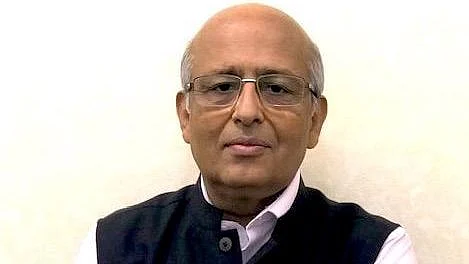Weeks after criticising the Narendra Modi-led government’s handling of the pandemic, senior virologist Shahid Jameel has resigned as chairman of a forum of scientific advisers set up by the government last year.
The scientific advisory group of Indian SARS-CoV-2 Genome Sequencing Consortia (INSACOG) was set up for laboratory and epidemiological surveillance of mutating strains of COVID-19 in the country.
“It's correct and I shall have nothing more to say. I am not obliged to give a reason,” Jameel said in a text message to news agency Reuters, adding that he quit on Friday.
‘Human Cost Will Leave Permanent Scar’
Recently, he had written a piece in The New York Times, where he highlighted how scientists in India were receiving a “stubborn response to evidence-based policymaking.”
Jameel said lower testing, slow pace of vaccination, vaccine shortage and the need for a bigger healthcare workforce were some of the biggest shortcomings in the government’s handling of the pandemic.
“Decision-making based on data is yet another casualty, as the pandemic in India has spun out of control. The human cost we are enduring will leave a permanent scar,” he wrote.
Earlier this month, Reuters had reported that INSACOG had warned the government in early March of a new and more contagious variant of COVID-19 that could grip the country.
The B.1.617 variant is one of the reasons India is currently battling the world's worst surge in COVID-19. Jameel had also told Reuters that authorities were not paying enough attention to the evidence as they set policy.
Criticism of Govt's COVID Management
The government has been criticised for ignoring warnings about a second wave of COVID, which led to death of thousands of people and a near collapse of the healthcare system.
India is currently dealing with a shortage of hospital beds, oxygen, vaccines and medicines as the country reports more than 3 lakh infections per day over the past three weeks.
Meanwhile, COVID-19 is wreaking havoc in rural areas, where a weak health infrastructure and a lack of access to technology has left people more vulnerable to effects of the pandemic.
In 2020, Dr Gagandeep Kang, a professor at the Christian Medical College, Vellore, and one of country’s most prominent virologists was leading an ICMR task force on COVID-19 vaccines and drug research. Subsequently, the concerned task was handed over to a different department, headed by Dr Renu Swarup.
Following this, Kang stepped down from her position as the director of Translational Health Science and Technology Institute (THSTI), Faridabad.
She has been repeatedly vocal about the gaps in central government’s vaccine policy.
The Supreme Court on Saturday, set up a 12-member task force which oversees the public health response to COVID-19 based on scientific and specialised knowledge. The microbiologist is now a party of the national body.
So far, India, despite being the world’s largest vaccine-producing nation, has only fully vaccinated over 4 crore people or 2.9 percent of its population.
According to health ministry data, 14.16 crore people have received at least one vaccine dose, or roughly 10 percent of the population of 135 crore.
As per official numbers, on Sunday, India reported 3,11,170 new cases, 3,62,437 discharges and 4,077 deaths in the last 24 hours.
(With inputs from Reuters, NDTV, The New York Times)
(At The Quint, we question everything. Play an active role in shaping our journalism by becoming a member today.)
